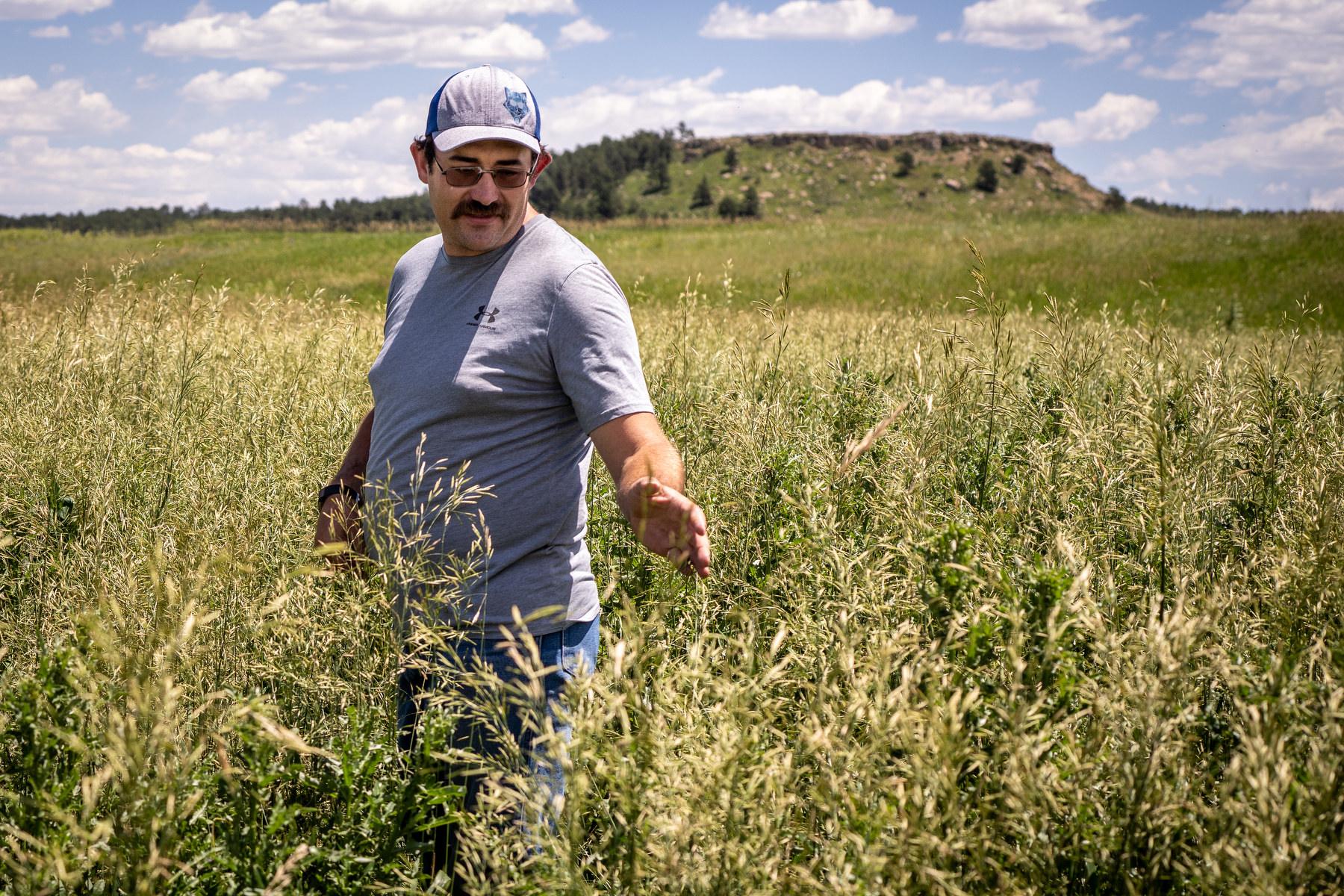
William Vogl grew up near a 600-acre cattle ranch in El Paso County, helping his parents raise beef cattle that they’d sell directly to customers. But in 2001, as an epic drought spread through Colorado, Vogl said part of his family’s ranch saw no rain for nine months.
“I watched their cattle operation just come to a screeching halt and collapse,” he said.
Vogl started his own homestead around 12 years ago, east of Colorado Springs, and became interested in “regenerative agriculture,” which can improve soil health and make farms more drought-resistant.
“So that’s where it tied back to me being a kid, and watching what can happen,” he said of his attempt to build a more resilient farm in a climate-changed world.
Now, his small seven-acre operation supports around 100 sheep, who also graze on around 200 acres he leases. Vogl also has a burgeoning compost operation — he layers the compost over existing soil, which helps it absorb more water and nutrients. The results, he said, are “amazing.”
Droughts are becoming a persistent concern for Colorado farmers, as climate change drives water scarcity and extreme temperatures across the West. Plus, parts of Colorado have famously bad soil for farming — it’s sandy, silty and prone to erosion. The state has spent decades and millions of dollars investing in solutions since the devastating Dust Bowl of the 1930s.
With a federal grant administered through the Quivira Coalition, a regenerative agriculture and conservation nonprofit, Vogl planned to scale up his composting and scientifically measure how his soil is improving, to prove it could benefit small ranches like his.
But in April, the United States Department of Agriculture abruptly cancelled that federal funding — known as the Partnerships for Climate-Smart Commodities — calling it part of a “green new scam.”
The program aimed to help farmers implement climate-friendly practices through funding and technical help. With a total budget of more than $3 billion, it awarded around $917 million to projects that include Colorado ranchers and farmers, according to a USDA dashboard.
Those dollars were split across 28 projects proposed by the state and over two dozen organizations across the West, including the Quivira Coalition.
Leah Ricci, interim head of Quivira, said her group would still roll out a slimmed-down version of their grant and dip into their operating budget to pay for it. But Quivira cannot expand its program without additional federal money.
Brooke Rollins, the USDA secretary, said in an April statement that “select projects” in the climate-smart program would continue, and that certain groups could reapply for funding under a rebranded version of the program.
A USDA spokesperson did not provide detailed information about how many grants were terminated in Colorado and how many groups reapplied.
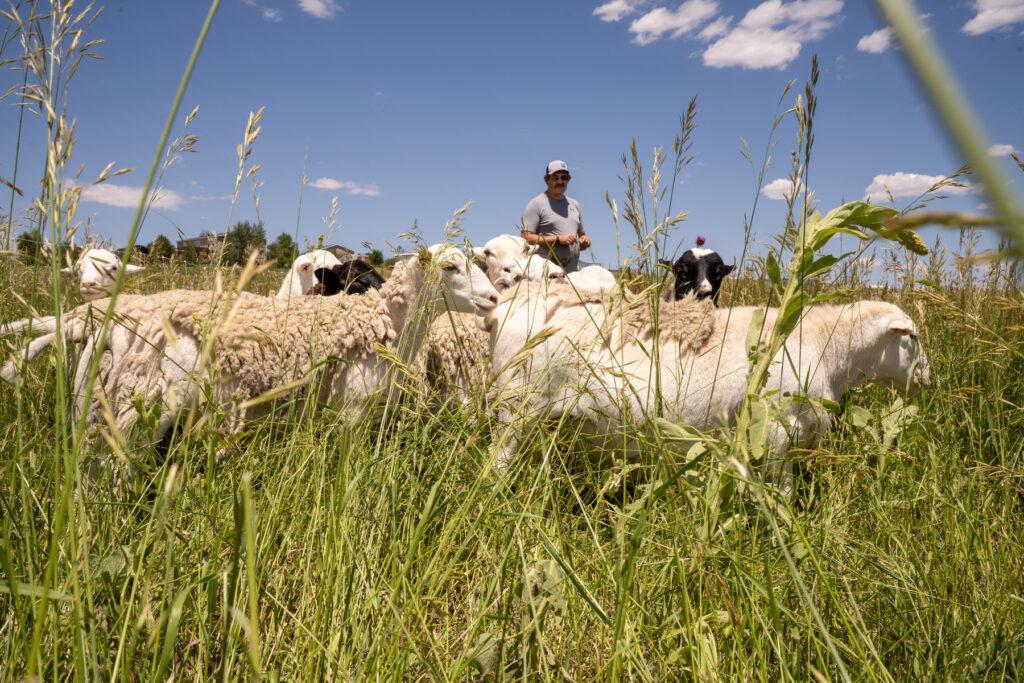
Evanne Caviness, conservation division director at the Colorado Department of Agriculture, said the abrupt cancellation is a hit to state programs that have worked with farmers over decades to improve agricultural practices and make them more environmentally friendly.
“We are not in the business of breaking trust,” Caviness said of her agency. She oversaw a $25 million climate-smart partnerships award for the state, and even participated in the program herself as a rancher.
“But unfortunately, because of the USDA cancelling the Partnerships for Climate Smart Commodities, we were put in a position where we had to,” she said.
“And that was not a good place to be.”
A climate program for farmers
As part of the Biden administration’s push to reach net-zero emissions by 2050 — a key component of the 2015 Paris climate accords — it launched the Partnerships for Climate Smart Commodities Program in 2022 to support pilot projects that cut planet-warming greenhouse gas emissions on farms and ranches.
Agriculture plays a huge role in climate change, producing up to a third of planet-warming emissions, which can come from activities like deforestation and raising cattle, which expel huge amounts of methane, a potent greenhouse gas.
Commodities include hundreds of products like timber, beef, peanuts, rice, cotton and more. A “climate-smart commodity” is produced using techniques that reduce emissions or even sequester carbon in the soil.
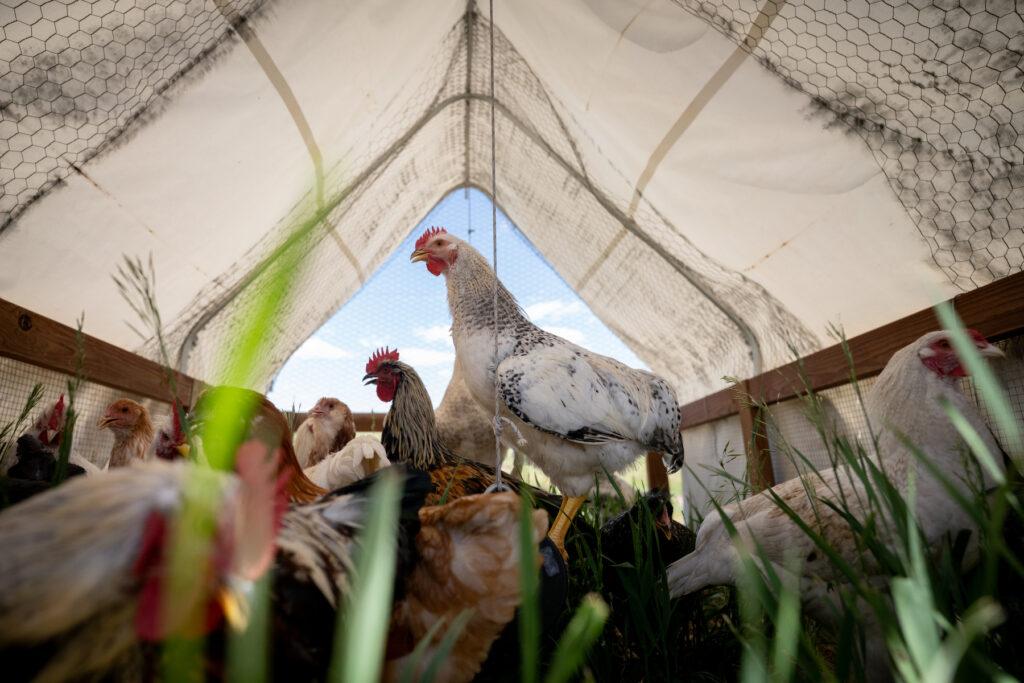
Those techniques have gained traction in recent years — they can include adding compost, reducing how often fields are tilled, or planting trees and reforesting. These practices can reduce the use of commercial fertilizer and promote carbon sequestration.
The program also aimed to help farmers measure how much greenhouse gas they removed from the atmosphere, an often tricky science.
Officials with the USDA hoped that by quantifying those reductions, consumers would pay a premium for sustainable products.
Those practices would also benefit farms, because practices like rotational grazing and planting cover crops also make the land more resilient to shifting weather patterns brought on by climate change, according to the agency.
The Biden administration allocated $3.1 billion to 141 projects, which in turn aimed to reach 60,000 American farms, according to a USDA dashboard.
In 2023, the Quivira Coalition was awarded $3.9 million from the USDA for its “Soil to Supper” initiative. The program included five Colorado ranchers, and aimed to help around 50 western producers repurpose waste products — like animal poop or woody debris — to improve soil health and eventually sell more grass-fed meat.
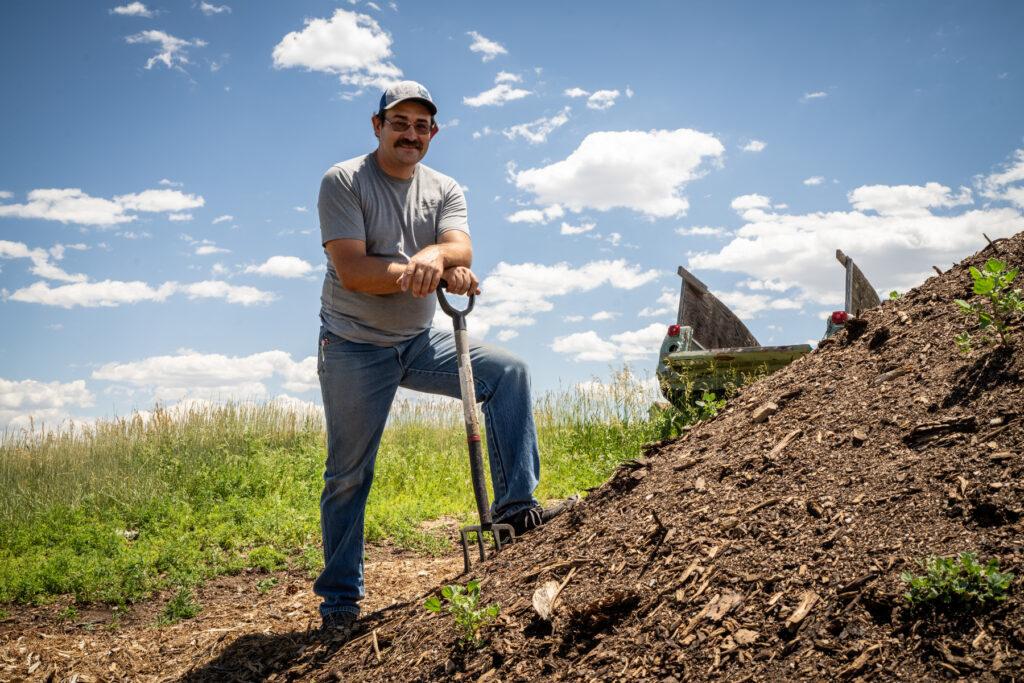
But in January, the Trump administration froze funding for the program, leaving groups like Quivira in limbo. In April, the USDA sent an email to Quivira terminating their grant.
Ricci said the program's cancellation would ripple across rural areas; Quivira’s grant also reached a network of subcontractors who took soil samples or helped ranchers.
“The economic impacts are going beyond just the ranchers and farmers, and into rural communities more broadly,” she said.
A Colorado-designed program, boosted by federal funds
A climate-smart commodities grant also bolstered an existing Colorado Department of Agriculture program, which aimed to help farmers and ranchers improve and prepare their soil for a drier, hotter future.
In 2022, the USDA awarded Colorado a $25 million climate-smart grant, which allowed its soil health program to enroll more producers. To help producers adopt new practices, the program provided matching funds and grants to pay for pricey equipment or new seeds.
The program also provided technical help, like soil sampling and even microbial DNA sequencing, so farmers could improve microbial soil health. Those microbes help roots absorb nutrients and water.
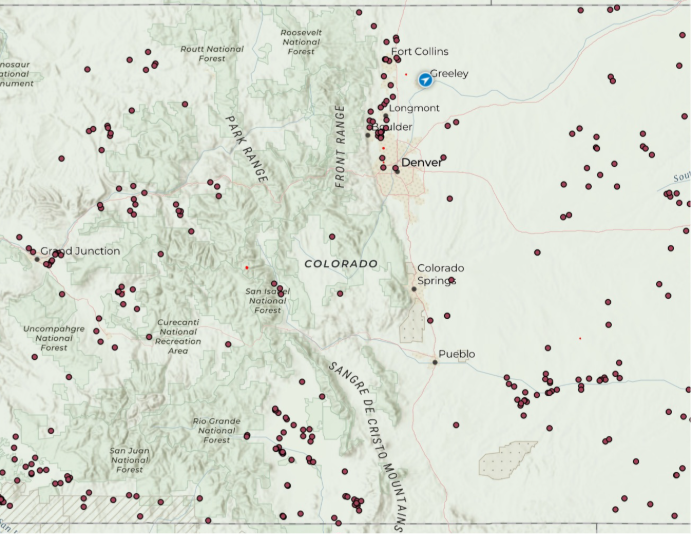
“The $25 million grant is an historic investment in Colorado agriculture that will advance farmer- and rancher-led soil and climate solutions,” according to a state website at the time.
By January 2025, the program had reached 60,000 acres in Colorado and more than 300 producers, according to a state report. This year, the program aimed to help producers market their products with their climate-friendly bona fides.
Caviness, the conservation director at the state’s department of agriculture, said the program’s cancellation was “shocking,” and left her staff scrambling to tell farmers and ranchers that they couldn’t count on as much technical help or money this year.
“I really want to emphasize that it really sucks as a state, because this is not our standard practice to go back on our word,” she said.
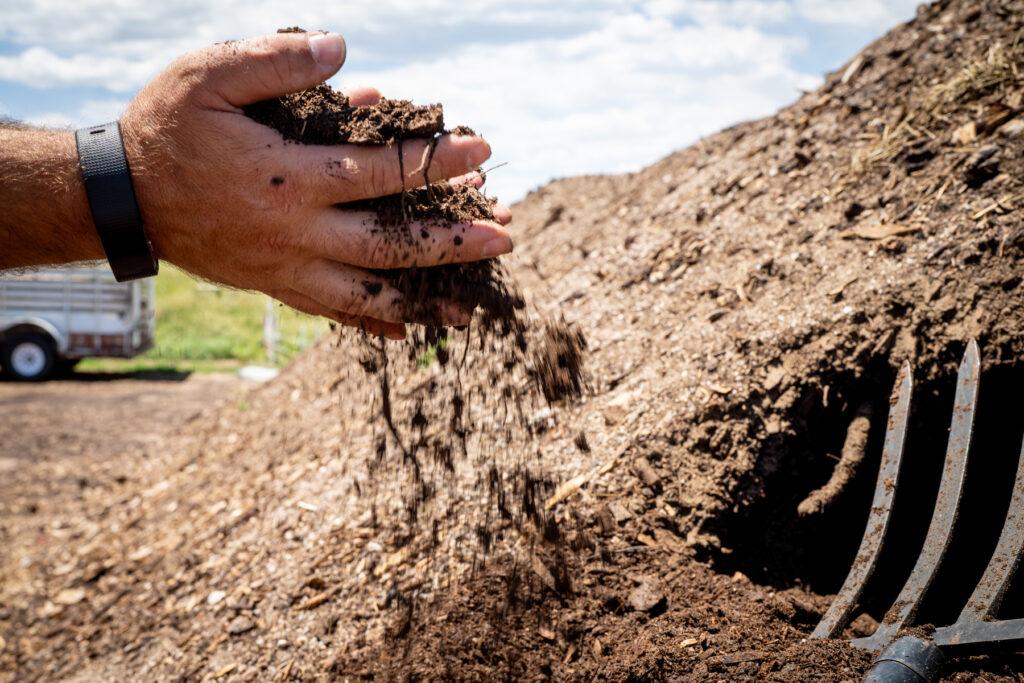
A replacement program still under development
In April, Secretary Rollins said the USDA would roll out a new program, called Advancing Markets for Producers, to replace the partnerships program. The new program requires projects to send most of their funding directly to producers, but it doesn’t require projects to measure their greenhouse gas benefits.
The program will be funded with existing funds from the climate-smart commodities program, according to a USDA spokesperson.
The climate-smart program has only spent around $493 million of its budget, which leaves roughly $2.6 billion in remaining funds to be redistributed, according to an analysis of the federal government’s spending portal.
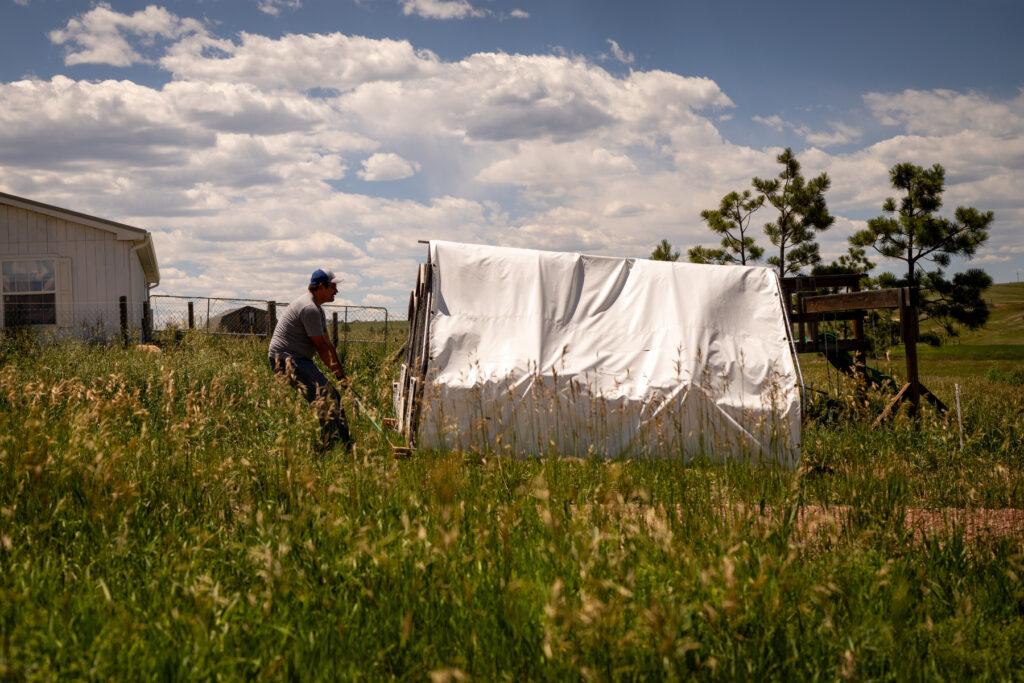
It’s unclear how exactly the new program will work. The changes, though, mean that some grants will be overhauled and that Colorado may have less federal support for its soil health programs.
Caviness said the state re-applied for funding under the new program, but that new requirements may not allow her to support as many producers as the original climate-smart grant. Her office has not yet heard back about whether they’ve received the new funds.
In an email, a USDA spokesperson said applicants would hear back about the new program “soon.”
Despite the loss of federal support, Caviness said the state’s soil health programs would soldier on with a smaller footprint using state dollars. Her office now has just $50,000 in yearly grant funding — compared to $25 million over four years — to distribute to producers throughout the state.
A new $3 million Colorado tax credit, set to go in effect in January, will also provide up to $300,000 each to Colorado producers who implement several climate-friendly practices.
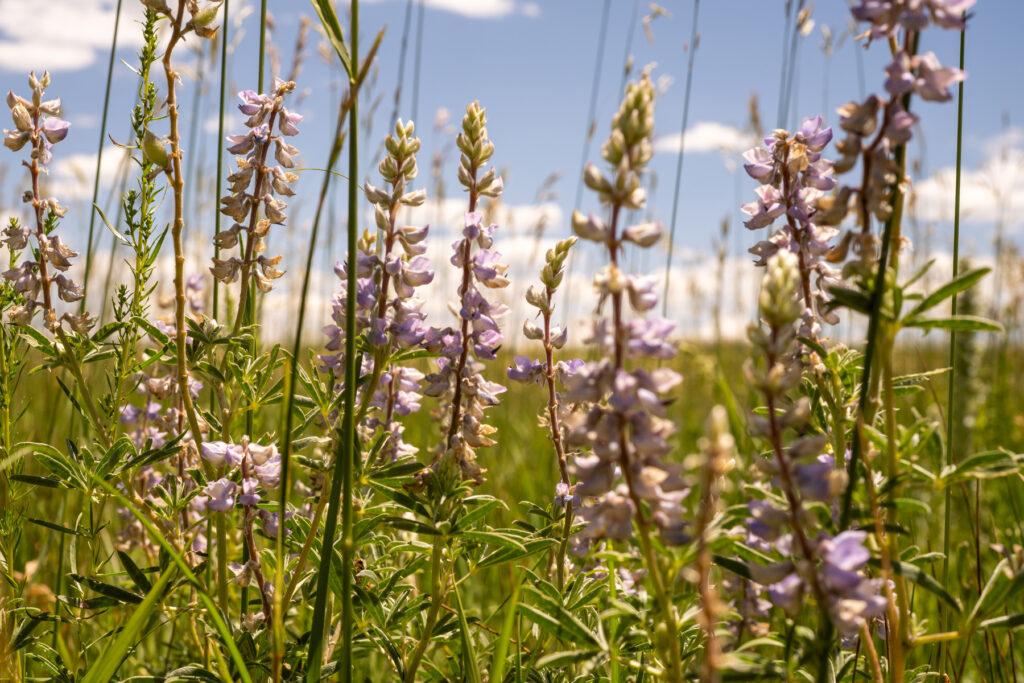
With the federal dollars in limbo, Vogl, the rancher, cannot purchase the equipment he needs to expand his on-ranch composting operation to prepare more of his soil for a drier future.
“It’s really hamstringed the potential that I have,” he said of the cancellation. If he’d been able to expand his operation, Vogl said his land would have become more productive and more drought-resistant.
“And the benefits of those can make or break a small farm operation when the next big drought comes through,” he added in an email.







